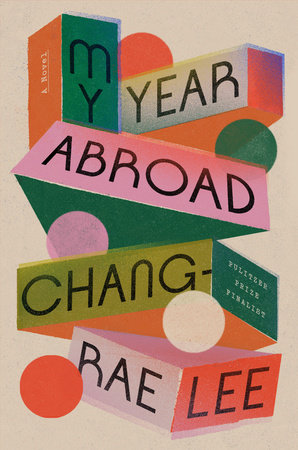
News
HMS Is Facing a Deficit. Under Trump, Some Fear It May Get Worse.

News
Cambridge Police Respond to Three Armed Robberies Over Holiday Weekend

News
What’s Next for Harvard’s Legacy of Slavery Initiative?

News
MassDOT Adds Unpopular Train Layover to Allston I-90 Project in Sudden Reversal

News
Denied Winter Campus Housing, International Students Scramble to Find Alternative Options
‘My Year Abroad’ Review: The Wisdom of Aimlessness

In an interview with Princeton University, acclaimed novelist Chang-rae Lee once described his wordsmithing as a sort of “pathology.” “I like to put a lot of pressure and attention on every sentence, and I really can’t move on until I’m satisfied by the previous sentence,” he said. In fact, it’s not uncommon for Lee to revise a single line 10 or 20 times before training his focus on the next.
This strategy seems rather excessive until one becomes acquainted with the exacting style of Lee’s prose. His writing is marked by a hallmark descriptive richness — and extremely long sentences. A sentence on the first page of his novel “The Surrendered,” the Pulitzer Prize finalist on the intersecting paths of three lives shaped by the devastation of the Korean War, numbers nearly 70 words. His newest foray into fiction, “My Year Abroad,” is no exception. Totalling 61 words, the book’s opening sentence snakes well into the first page.
On the surface, “My Year Abroad” delivers exactly what its title promises: an account of somebody’s year abroad. However, it quickly becomes clear that Lee’s story is as much about the mental and emotional complexities of being unmoored as it is about a physical state of travel. At its best, the novel is an artful reminder that wanderlust is often just a masked desire to return home. Lee chooses to magnify his characters’ anxieties, underscoring their shared unease at the prospect of being left behind. But as the story suggests time and again, it’s precisely these characters’ deficiencies — and their ensuing efforts to evolve, to find wholeness — that make them so capable of love.
The novel follows ex-college student Tiller Bardmon who, disenchanted by his prestigious college in the fictive town of Dunbar, New Jersey, resolves to venture into the broader world. (One notes that this unnamed institution is strikingly similar to an actual liberal arts college esteemed for its manicured lawns and swanky eating clubs)
Alternating between the past and the present, the story introduces a host of central characters including Val, Tiller’s older beau; Victor Jr., her brilliant yet sociopathic son; and Pong, a mysterious Chinese businessman who convinces Tiller to partake in his ventures. Each stirs something deep within Tiller — his vulnerability, his loneliness, his complicated animosity and his search for love. However, they also remain inaccessible, full of secrets and concealed past traumas. It’s this fraught tension between intimacy and distance that shapes the relationships of Lee’s protagonist.
The winding prose of “Abroad” is undoubtedly challenging, at times even frustrating. Occasionally, it borders on the downright confused. The redeeming quality of Lee’s labored narration is the way it reflects the restlessness and caprice of Tiller’s own psyche. In many ways, Tiller reads like a cosmopolitan Holden Caulfield. Like Salinger, Lee fixates on the adolescent’s capacity for both wonder and disillusionment, for a love of the world and a simultaneous revulsion toward its brutality and injustice. At one point, Tiller reflects on his complicated love for both Val and his broader surroundings. “I do love her and that’s that but sometimes I think I love the world more,” he muses. “Am I totally messed up? If you’re willing to die for too many things, does it mean you care too much or too little? Does it mean you’ll break down very soon?”
But where some of Lee’s stylistic choices succeed, others fail. By interweaving the past and the present, Lee endeavors to arrive at a sort of retrospective lucidity. Sometimes, it works. Withholding details about Tiller’s past creates a productive tension; Lee flashes glimpses of — but initially doesn’t reveal in full — the nature of his protagonist’s formative escapades. On other occasions, the continual mention of a past Tiller promises he’ll “eventually describe” feels like a poorly masked attempt at incentivizing readers to just keep reading.
The most interesting feature of Lee’s newest novel is the versatile function of its titular concept: being “abroad.” The layered significance of this term serves as the novel’s central revelation. In the most literal sense, Tiller goes abroad by leaving Dunbar. But more abstractly, he’s been abroad his entire life. Ethnically, Tiller feels disconnected. He self-identifies as a misfit “near whiteness,” even using the phrase “semidiasporic postcolonial indeterminate” to describe his mixed heritage. The same can be said about his social situation; when enrolled in college, the Dunbarite attends expensive ski trips with acquaintances and bears witness, half amused and half disgusted, to their blithe excess. Even in his most familiar spaces — even within his own body, his heritage — it’s possible that Tiller has always been abroad, peering into his own life from the outside.
Tiller’s experience of being adrift in both body and spirit speaks directly to the novel’s underlying vision. Because for Lee, “abroad” never functioned simply as a description of physical departure. Rather, it served as an encompassing sensibility — not just a way of describing the world, but also of existing in it.
—Staff writer Isabella B. Cho can be reached at isabella.cho@thecrimson.com. Follow her on Twitter @izbcho.
Want to keep up with breaking news? Subscribe to our email newsletter.
